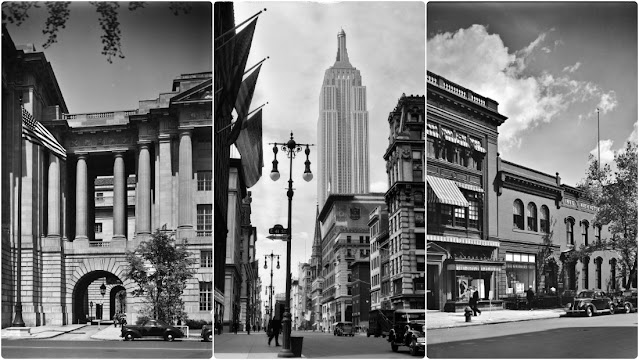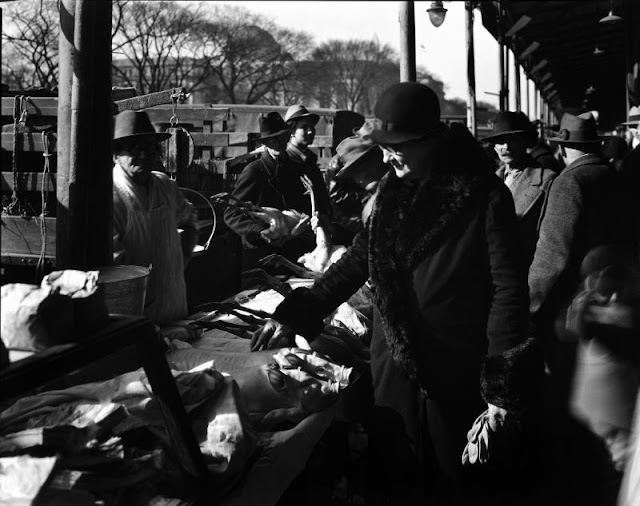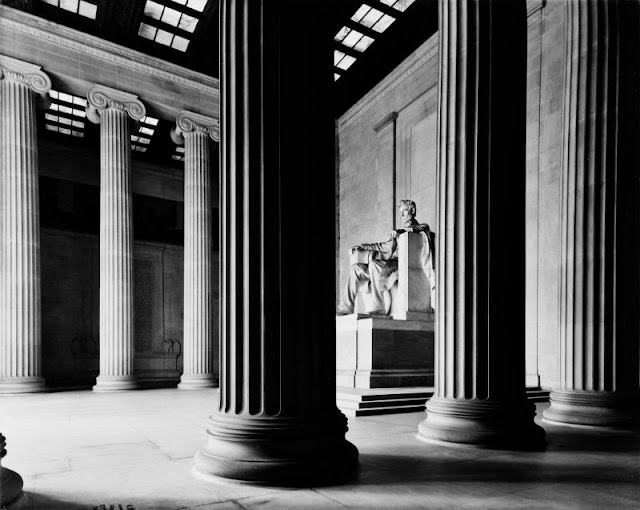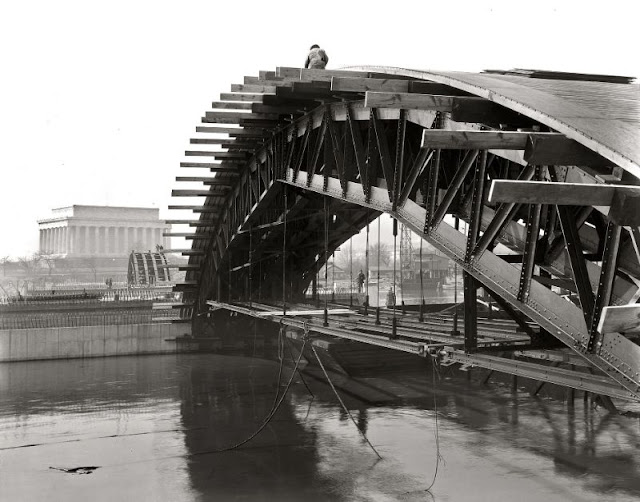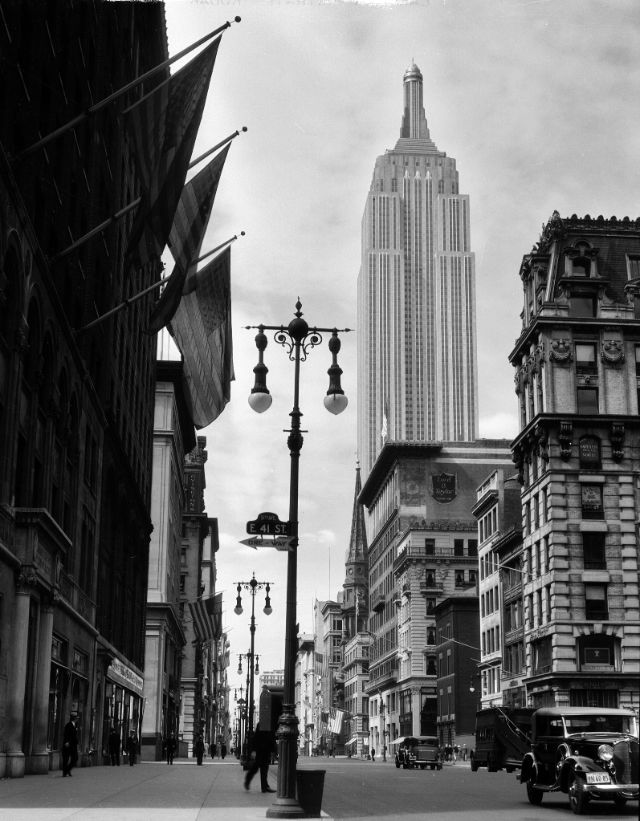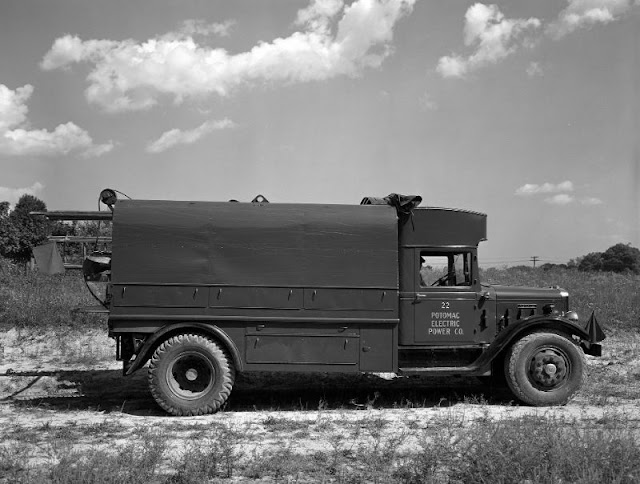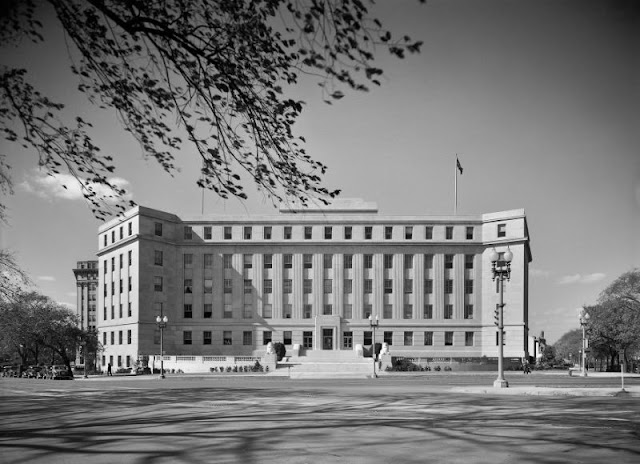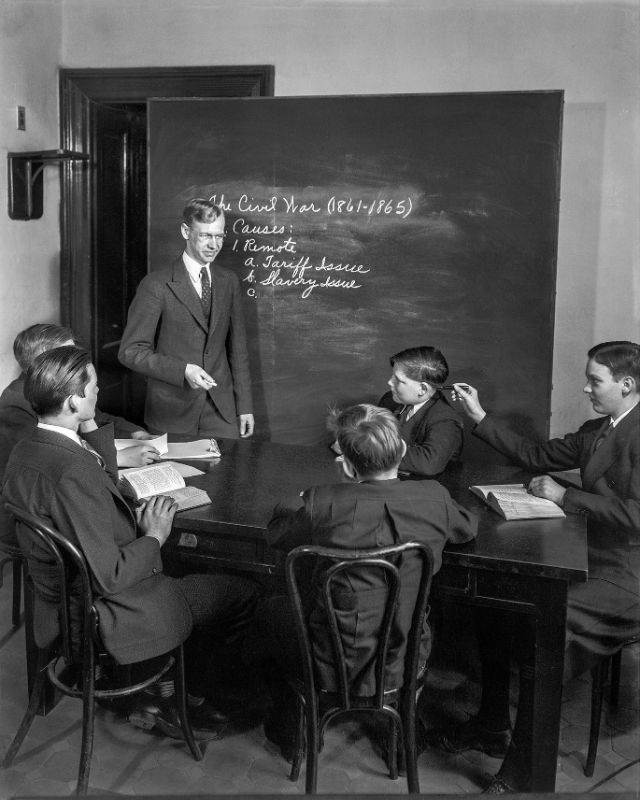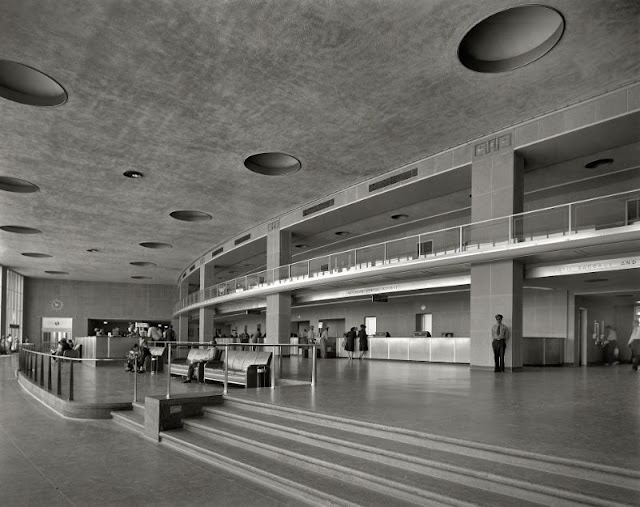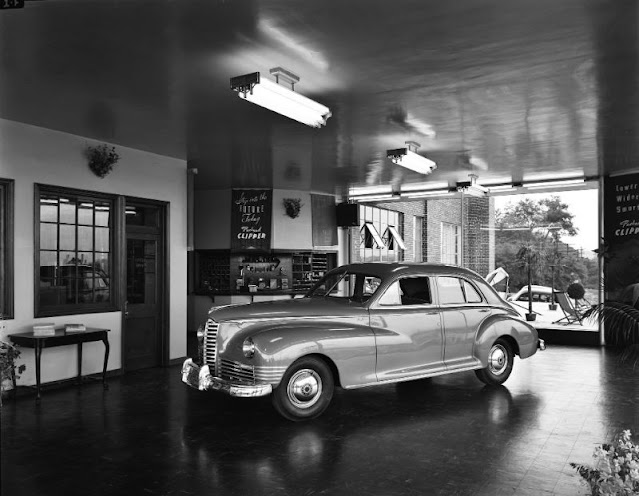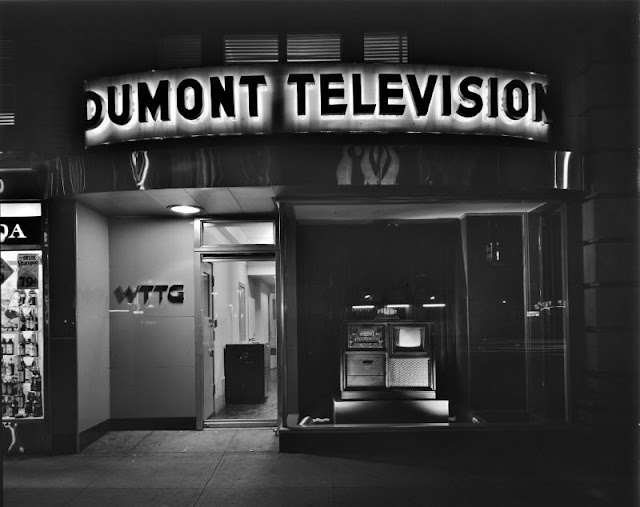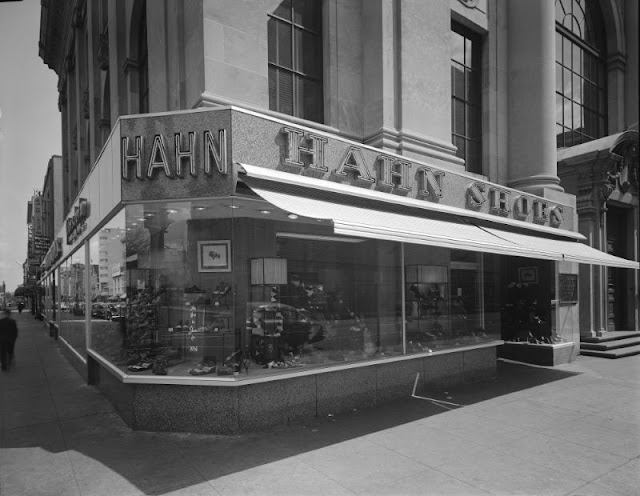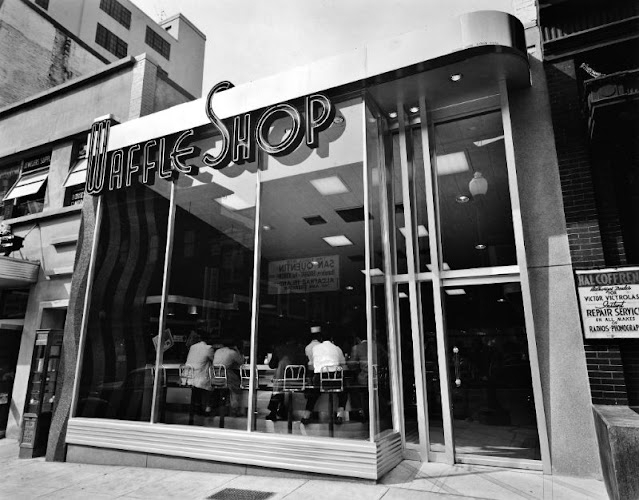Born 1889 in Lyck, Germany (now Poland) and emigrated in 1907, American photographer Theodor Horydczak is believed to have taken up photography during or after World War I, possibly while a member of the U.S. Army Signal Corps. His numerous “Washington as it Was” photographs are housed in the Library of Congress Prints and Photographs Division in the James Madison Memorial Building.
![]() |
| The United States from the late 1920s to ’40s photographed by Theodor Horydczak |
Horydczak was known for his photographs of the exteriors and interiors of commercial, residential, and government buildings and of events such as the 1932 Bonus Army encampment and the 1933 World Series. He retired in 1959.
Horydczak used a large-format Gold Ansco camera and typically used the photographic style called “bracketing,” or taking many subsequent images at different aperture settings. He married Frederica; they had a daughter Norma.
Horydczak died in 1971 in Montgomery, Pennsylvania, aged 82. These fascinating photos are part of his work that Theodor Horydczak took the United States from the late 1920s to 1940s.
![]() |
| Marketing at Center Market, Washington, D.C., circa late 1920s to early ’30s |
![]() |
| Shopping at Center Market, Washington, D.C., circa late 1920s to early ’30s |
![]() |
| View of the Lincoln Memorial statue through columns, 1925 |
![]() |
| Construction of Memorial Bridge over Potomac River, Washington, D.C., circa 1930 |
![]() |
| Exterior of the Washington Gas Light Co., circa 1930s |
![]() |
| Lobby, Acacia Mutual Life Insurance Co. building, Washington, D.C., circa 1930s |
![]() |
| Turbine hall of the Conowingo Hydroelectric Plant, 1930 |
![]() |
| Window display of whiskey at Leon's Delicatessen, circa early 1930s |
![]() |
| Exterior of Cavalier Hotel, Washington, D.C., circa 1931 |
![]() |
| View of Terminal Tower at night, with eagle on right, Cleveland, Ohio, 1931 |
![]() |
| Shoreham Hotel from across Calvert Street, Washington, D.C., circa 1932 |
![]() |
| Front of wrecked automobile, Washington, D.C., 1933 |
![]() |
| The Empire State Building from 41st St. and 5th Ave., New York City, July 4, 1933 |
![]() |
| Miss Lucy Alexander, food tester, Department of Agriculture, Washington, D.C., circa 1935 |
![]() |
| Potomac Electric Power Co. service station building, 10th Street and Florida Avenue. Linemen's truck, Washington, D.C., circa 1935 |
![]() |
| Sheaffer fountain pen factory, Fort Madison, Iowa, 1935 |
![]() |
| Exterior of Acacia Mutual Life Insurance Co. building, Louisiana Avenue, Washington, D.C., circa 1937 |
![]() |
| Passageway between ICC and Departmental Auditorium sections at U.S. Labor Department and Interstate Commerce Commission Building, 1937 |
![]() |
| Potomac Electric Power Co. pole setting, Washington, D.C., or vicinity circa 1937 |
![]() |
| Library of Congress annex (John Adams building) and Folger Library from northwest, Washington, D.C., 1939 |
![]() |
| "Beach with sunbathers." Chapel Point, Washington's "playground on the Potomac" near La Plata, Maryland, circa 1940 |
![]() |
| East front of U.S. Capitol at night in winter, 1940 |
![]() |
| Electric Institute of Washington. Display of ranges in lobby at Potomac Electric Power Co. building, April 17, 1940 |
![]() |
| Ernest Kendall, teacher of U.S. Capitol pages, Washington, D.C., circa 1940 |
![]() |
| National Naval Medical Center, front from left. Part of the hospital complex known today as Walter Reed National Military Medical Center, Bethesda, Maryland, circa 1940 |
![]() |
| Air raid equipments and personnel at Potomac Electric Power Co. Building, 1941-45 |
![]() |
| Interior of waiting room showing ticket counter of National Airport, Arlington County, Virginia, circa 1941 |
![]() |
| Plane in front of the passenger terminal at the National Airport, 1941 |
![]() |
| Closeup of Benning plant with good clouds, Potomac Electric Power Co., May 31, 1943 |
![]() |
| Commercial kitchens, restaurants and lighting of Potomac Electric Power Co. Sholl's Georgian Cafeteria, 3027 14th Street N.W., Washington, D.C, December 3, 1946 |
![]() |
| Showroom at Superior Motors, Griffith Consumers Co., September 1946 |
![]() |
| Exterior of Dumont Television, 12th Street, March 10, 1948 |
![]()
|
| Exterior of Hahn Shoes, circa 1940s |
![]() |
| Exterior of Waffle Shop from side angle, on 10th Street in Washington, D.C., circa the late 1940s |
